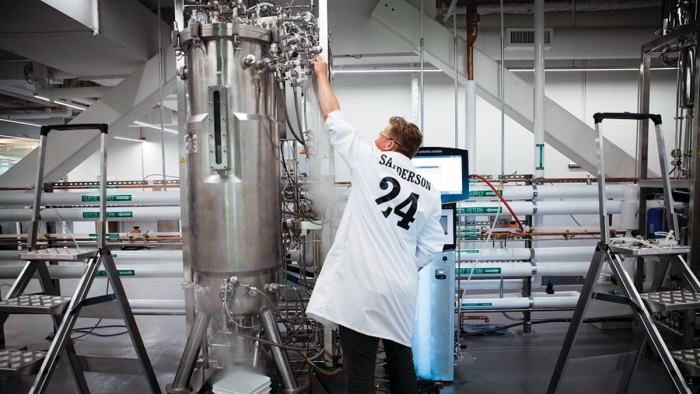Bolt Threads, a synthetic biology company specializing in biomaterials, plans to go public through a merger with a special purpose acquisition company (SPAC) at a $250 million valuation. The deal will provide Bolt capital to expand the production and distribution of its bio-based ingredients.
Founded in 2009, Bolt Threads utilizes fermentation technology to create sustainable materials as alternatives to plastics and silicones. The company is best known for its protein polymer “Microsilk” inspired by spider silk, though it has pivoted its focus to a new key ingredient called B-Silk.
B-Silk is designed as a biodegradable substitute for silicone elastomers in skincare and cosmetics. It is currently used in several brands carried at Sephora. Bolt holds 34 patents on the material and sees a $4 billion addressable market based on the prevalence of silicone-based cosmetic ingredients.
After raising over $330 million as a private company, Bolt began seeking a SPAC partner earlier this year to fuel its next stage of growth. It will merge with blank-check firm Golden Arrow Merger Corp in a deal expected to close in Q1 2023.
The merger values Bolt at an enterprise value of $346 million and will provide $46 million in capital. Bolt had once reached a $1 billion “unicorn” valuation during its private funding rounds. The lower merger cost reflects the recent plunge in valuations for speculative tech firms.
Bolt CEO Dan Widmaier said the SPAC deal made sense for the company despite the market downturn. He remains convicted in Bolt’s long-term vision for developing biomaterials that reduce environmental harm.
Widmaier acknowledges executing that vision has proven challenging, as it requires continuous scientific innovations. Rival synthetic biology unicorn Ginkgo Bioworks has seen its valuation crater since going public, showing the difficulty of scaling new biotech platforms.
But Widmaier believes Bolt’s early B-Silk traction validates its bio-production capabilities. The funding from the SPAC merger will further derisk Bolt’s manufacturing operations.
Beyond cost improvements, proceeds will also expand B-Silk’s distribution through brand partnerships. Widmaier said Bolt may eventually commercialize more biomaterial ingredients for apparel, footwear, and other consumer products.
Bolt’s SPAC deal reaffirms investor appetite for promising synthetic biology firms, albeit at far more restrained valuations than during the recent biotech hype cycle. Widmaier seems to embrace this return to pragmatism, focusing Bolt on executing its environmental sustainability vision through science-driven incrementalism rather than hype-driven rapid expansion.
If Bolt can continue gaining commercial traction with ingredients like B-Silk while advancing new bio-innovations, its future as a public company may prove brighter than sector peers. But in the fledgling field of synthetic biology, sustaining funding for such capital-intensive long-term development will require maintaining investor confidence through steady execution.








